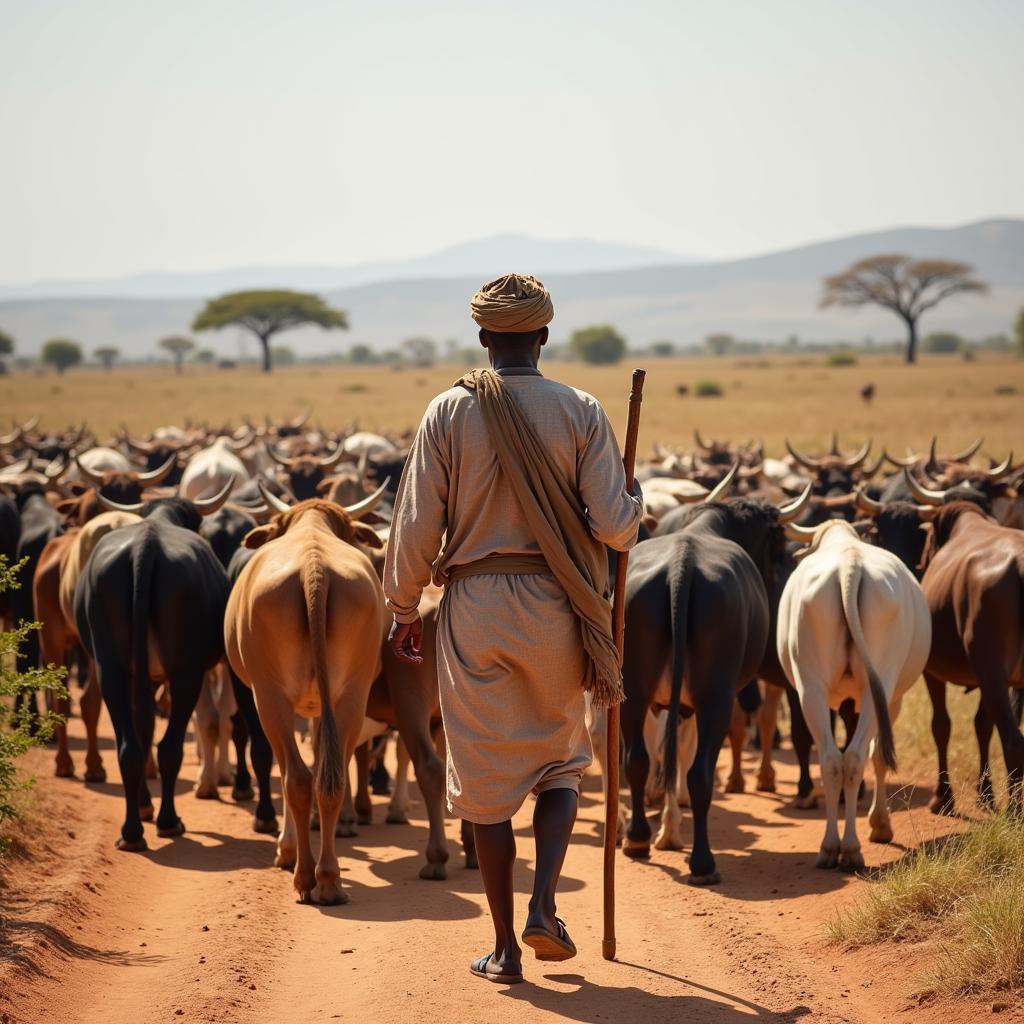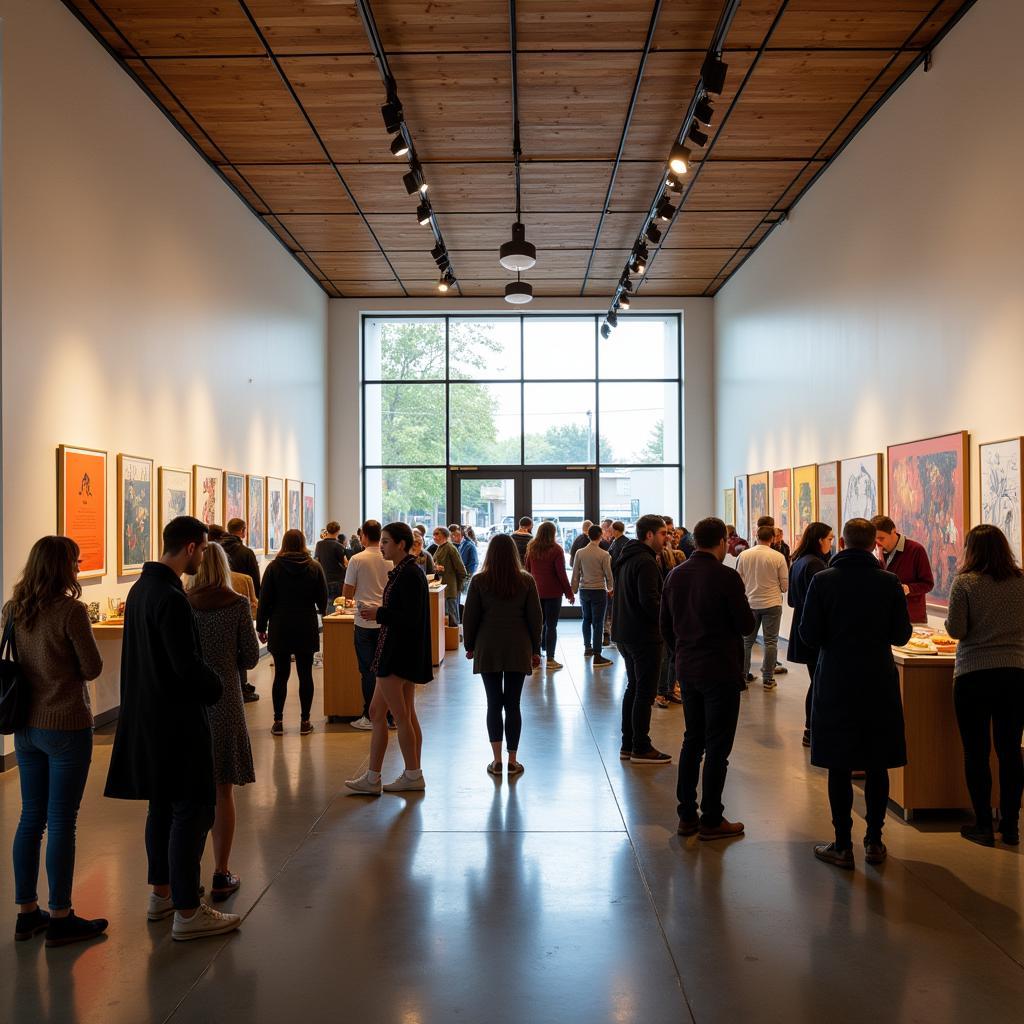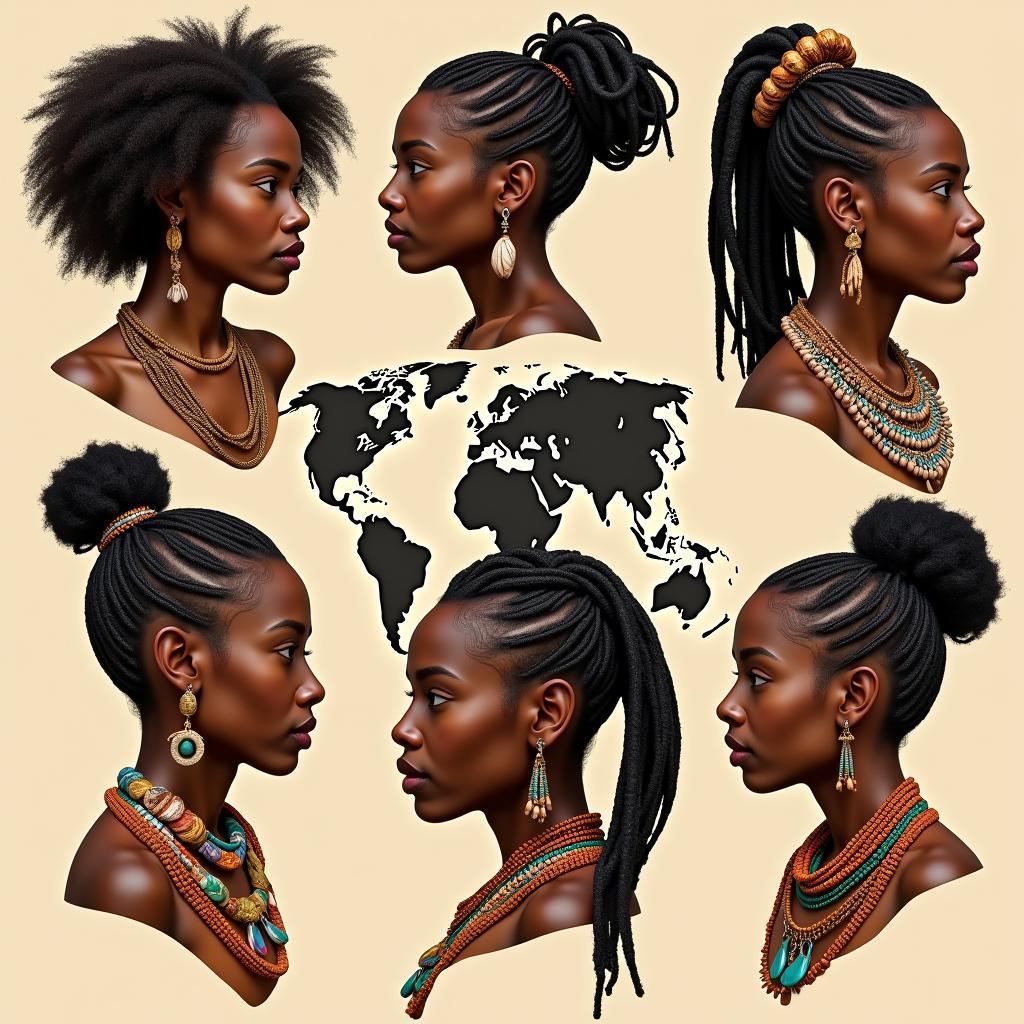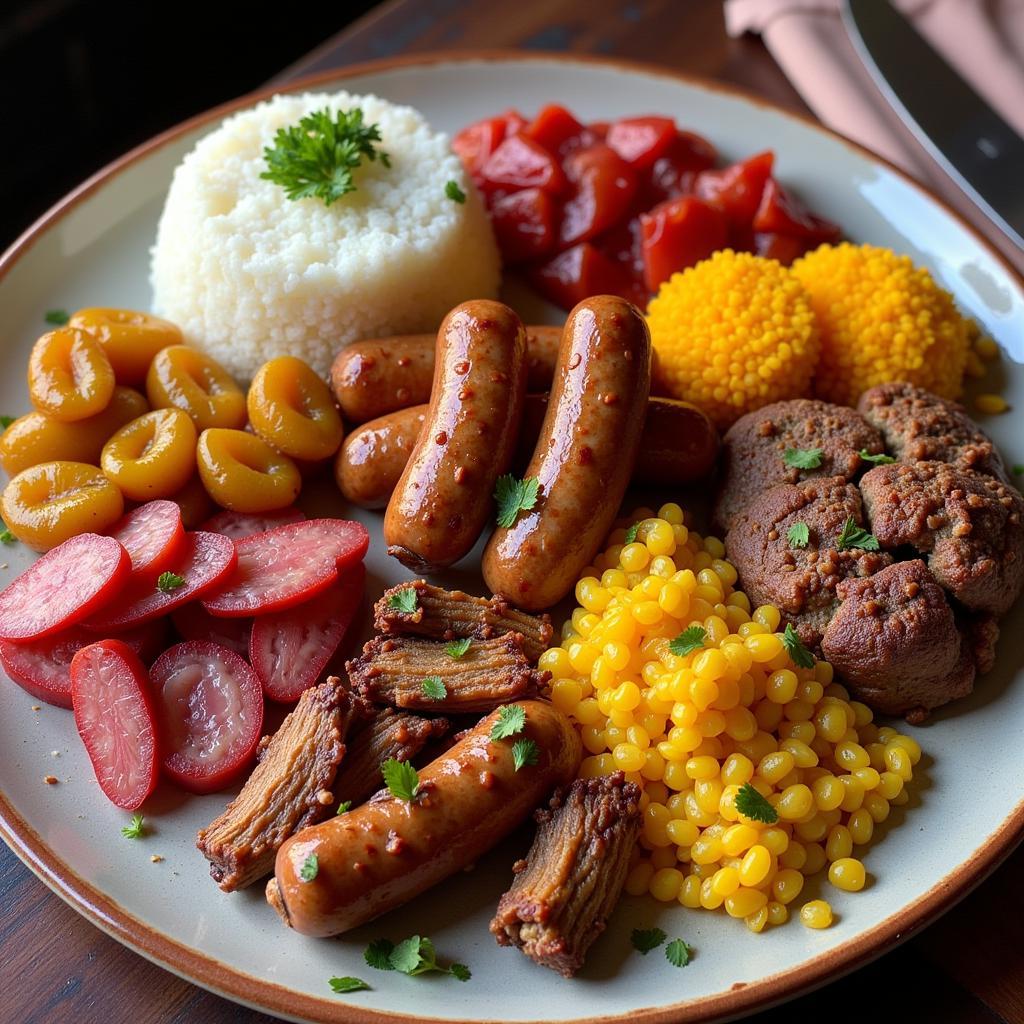Unveiling the Myths of the African Zombie
The concept of the “African Zombie” is often shrouded in mystery and misconceptions, fueled by Western media portrayals that rarely capture the nuanced cultural contexts from which these beliefs originate. This article delves into the rich tapestry of African traditions and spiritual beliefs to explore the diverse interpretations of the “zombie” across the continent. We will examine the historical roots, social implications, and the fascinating intersection of folklore, religion, and even pharmacology in shaping these captivating narratives.
Exploring the Origins of the African Zombie
Unlike the Hollywood depiction of flesh-eating undead, the African zombie concept varies significantly across different regions and cultures. It’s rooted in a deep connection to ancestral spirits, the power of healers, and the fear of spiritual manipulation. In some West African traditions, the “zombie” is believed to be a person whose soul has been stolen or their will enslaved through powerful rituals. This concept often serves as a social commentary on the dangers of unchecked power and the importance of respecting spiritual boundaries. This is a far cry from the typical Western depiction of the undead. Let’s take a closer look at the cultural variations.
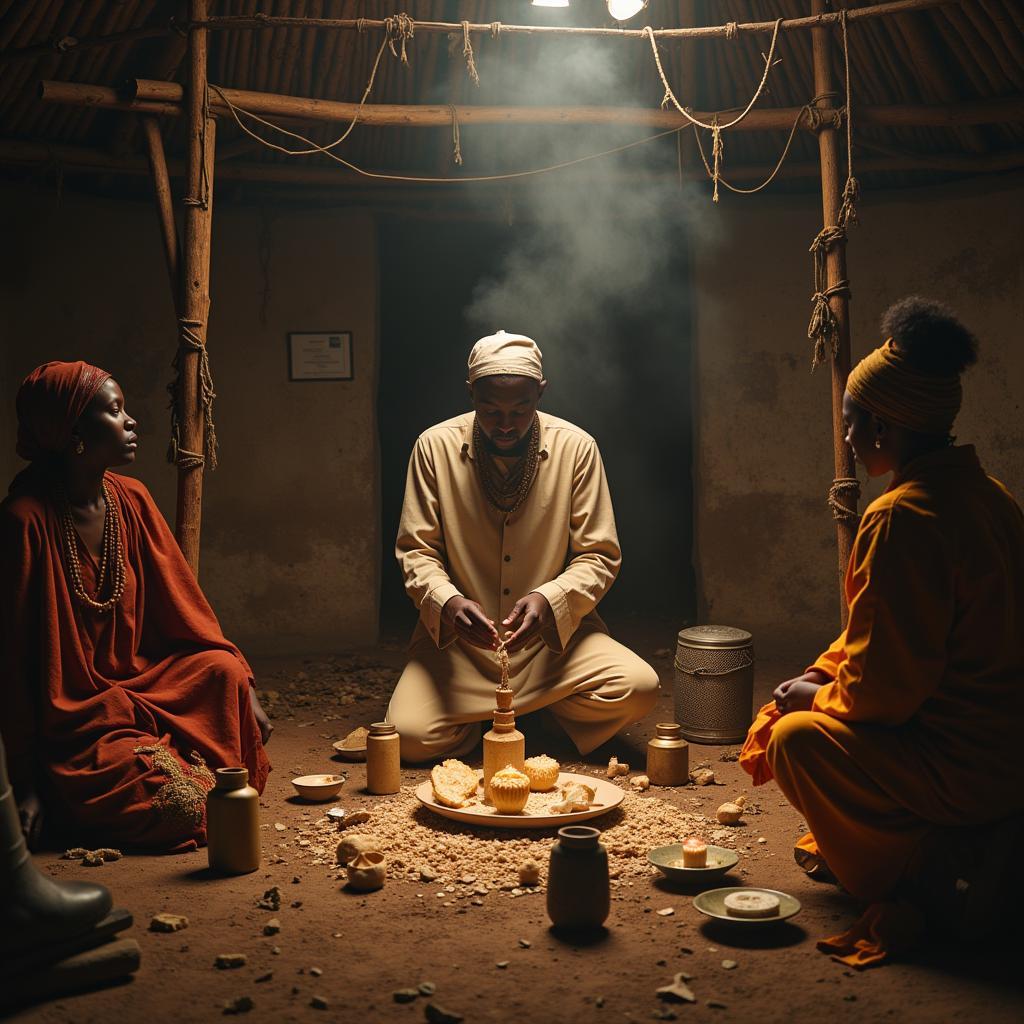 West African Zombie Rituals Depiction
West African Zombie Rituals Depiction
Cultural Variations of the Zombie Across Africa
From South Africa to Madagascar, the notion of the “zombie” takes on different forms. In some cultures, it’s linked to ancestor worship and the belief that the dead can be called back to the world of the living through specific rituals. In others, it’s associated with witchcraft and the fear of being controlled by malevolent forces. In Haiti, heavily influenced by West African traditions, the “zombie” is a central figure in Vodou, often depicted as a reanimated corpse controlled by a sorcerer. This differs significantly from, say, the Zulu understanding of the undead.
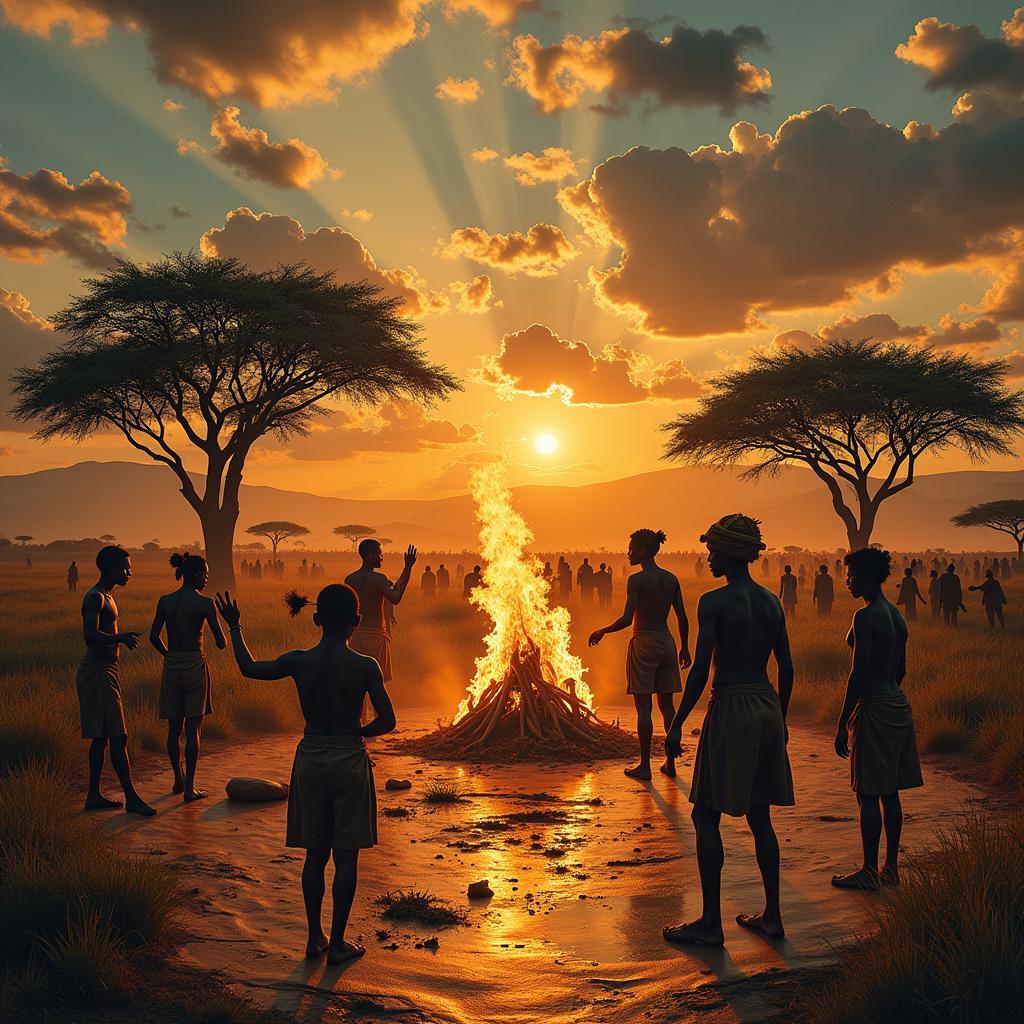 Zulu People's Belief in the Undead
Zulu People's Belief in the Undead
The Role of Traditional Healers and Spiritual Practices
Traditional healers play a crucial role in many African societies, possessing knowledge of medicinal plants and spiritual practices. While often associated with healing and protection, they are sometimes also believed to have the power to manipulate spiritual forces, which can contribute to the beliefs surrounding the “zombie.” These intricate spiritual practices offer a glimpse into the complex interplay between life, death, and the spiritual realm. You might be interested in learning about some great African songs that explore these themes. Check out 3 great african songs.
African Zombie in Popular Culture: Beyond the Stereotypes
While Western media often portrays the “African zombie” through a sensationalized lens, it’s crucial to understand the deeper cultural significance behind these narratives. These stories often reflect societal anxieties, ethical dilemmas, and the struggle between tradition and modernity. Exploring these nuanced perspectives offers a more complete understanding of the “African zombie” beyond the typical horror movie tropes.
The Intersection of Folklore and Pharmacology
In some instances, the “zombie” narrative intersects with pharmacology. Ethnobotanical studies have suggested that certain plant extracts, traditionally used in some African cultures, could induce a state of catatonia or altered consciousness, possibly contributing to the beliefs surrounding the reanimation of the dead. This intersection of folklore and pharmacology adds another layer of complexity to the “African zombie” phenomenon. Let’s delve into some common questions people have about this fascinating topic. Here is a list of 8 South African horror movies, some of which might explore these themes.
What are the key differences between the African zombie and the Western zombie?
The African zombie is rooted in spiritual beliefs and often represents a person whose will has been enslaved, while the Western zombie is typically depicted as a reanimated corpse driven by a hunger for flesh.
How do African communities view the concept of the zombie?
The concept varies greatly across different communities. Some associate it with ancestor worship, others with witchcraft, and still others with social commentary on power dynamics.
Are there any historical accounts that might have influenced the zombie narrative?
While concrete historical evidence is difficult to find, oral traditions and anthropological studies provide valuable insights into the evolution of these beliefs. You can also research some African jazz artists list and their works, as they often incorporate cultural narratives into their music.
Is there a connection between traditional medicine and the zombie myth?
Some researchers believe that the use of certain plant extracts in traditional medicine could have contributed to beliefs about zombification, although this remains a topic of ongoing research.
In conclusion, the “African zombie” is a complex and multifaceted concept, deeply intertwined with African cultures, spiritual beliefs, and social dynamics. Understanding these narratives requires moving beyond simplistic stereotypes and appreciating the rich tapestry of traditions and folklore that shape these fascinating beliefs.
FAQ
- What is the origin of the African zombie myth? The origins are diverse, stemming from various African cultures and their beliefs surrounding ancestor worship, spiritual manipulation, and the power of healers.
- Is the African zombie the same as the Hollywood zombie? No. The African zombie is typically rooted in spiritual beliefs and social commentary, while the Hollywood zombie is a reanimated corpse.
- What role do traditional healers play in the zombie narrative? Healers are often seen as possessing the knowledge of spiritual forces, potentially contributing to the beliefs about zombification.
For further support, contact us at +255768904061, kaka.mag@gmail.com, or visit us in Mbarali DC Mawindi, Kangaga, Tanzania. Our customer service team is available 24/7.
